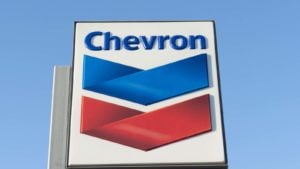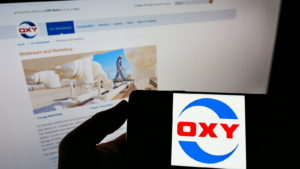Merger Mayhem: FTC’s Oil Sector Crackdown Puts These 3 Pending Deals at Risk
ExxonMobil (NYSE:XOM) recently completed its $60 billion acquisition of Pioneer Natural Resources. The deal expands the oil and gas giant’s presence in the oil-rich Permian basin. However, before the Federal Trade Commission (FTC) signed off on the transaction, Pioneer CEO Scott Sheffield was banned from taking a board seat at Exxon.
It alleged Sheffield colluded with the Organization of Petroleum Exporting Countries (OPEC) to keep oil prices higher. By calling for Permian producers to restrain investing too much to keep oil prices from collapsing during the pandemic, the FTC said that was akin to assisting OPEC, causing high consumer prices.
Recall this was when oil prices had plunged to negative $37 a barrel. Sheffield was rallying oil executives not to undermine the stability of the industry. The FTC’s decision displays ignorance of U.S. and global oil markets and how they work, as well as attacking Sheffield’s First Amendment free speech rights to comment on market dynamics.
While Pioneer and Sheffield said they wouldn’t challenge the decision, which allowed the deal to get done, the FTC’s overreach could impact several other pending deals or cast a pall on future transactions. Executives might not want to be singled out for public derision like Sheffield did.
There has been a gusher of mergers and acquisitions in the oil patch. According to the Energy Information Administration, there were $234 billion in M&A deals in 2023, the most since 2012. There has been an additional $51 billion deals through the first quarter of 2024. Below are three of the biggest deals in the space under FTC scrutiny.
Chevron (CVX) and Hess (HES)

Just weeks after Exxon announced it would buy Pioneer, Chevron (NYSE:CVX) said it would spend $53 billion to acquire Hess (NYSE:HES) as oil prices rose in response to the war in Ukraine and both Russia and OPEC cut production.
By buying Hess, Chevron would gain its 30% stake in the Stabroek block off the coast of Guyana. It is the world’s biggest oil discovery in a decade and one of the fastest-growing developments.
However, a wrinkle in the deal is Exxon Mobil owns 45% of Stabroek and has a right of first refusal to buy Hess and its stake. Exxon is accusing Chevron of trying to do an end-run around the agreement by buying Hess, and the matter is now heading to arbitration. A recent CNBC report quotes Exxon CEO Darren Woods as saying the dispute will drag on “into 2025.”
Democratic Senate Majority Leader Chuck Schumer wants the FTC to block the deal because “it would give Big Oil more fuel to raise gas prices.”
Of course, oil companies don’t set gas prices. As the Federal Reserve notes, local gas stations, not global oil companies, are responsible for prices. “Gas station operators set retail prices based on their expected acquisition cost for the next fuel delivery from the local distributor,” the Fed says.
Diamondback Energy (FANG) and Endeavor Energy Partners

Earlier this year, Diamondback Energy (NASDAQ:FANG) said it would buy privately held Permian producer Endeavor Energy Partners in a $26 billion cash-and-stock deal. If the deal goes through, Diamondback will become the third-largest player in the Permian basin behind No.1 Exxon and No. 2 Chevron.
The M&A transaction doesn’t need a senator to call for the FTC to intervene. The regulatory agency is doing it independently, sending the oil companies a second notice looking for additional information and documentary material. Under the Hart-Scott-Rodino Antitrust Act, the FTC and Justice Dept. have 30 days to act on a transaction before consummation. If they have antitrust concerns, they can request more information, called a “second notice.” The agencies can then seek a court injunction blocking the deal.
Under the Biden administration, the FTC has taken on multiple big M&A deals. It has lost every case in court, but often, the deals change to gain approval, or the companies back out. Diamondback and Endeavor maintain their deal will close by the fourth quarter.
Occidental Petroleum (OXY) and CrownRock

Warren Buffett’s favorite oil company Occidental Petroleum (NYSE:OXY) announced last December it would be buying shale oil and gas producer CrownRock in a $12 billion deal. CrownRock is a big Permian player, as is Occidental. This was the reason Buffett first bought shares of oil in 2019. He said it was “a bet on the fact that the Permian Basin is what it is cracked up to be.”
The FTC is stepping in here, too. The agency sent the two oil companies second notices, pushing the deal’s completion back to the end of the year as soon as possible. According to Reuters, five oil patch deals have received second notices from the FTC this year. Exxon also received one with Pioneer, as did Chevron and Hess. Chesapeake Energy (NYSE:CHK) and Southwestern Energy (NYSE:SWN) also got one for their $7.4 billion tie-up.
By buying CrownRock, Occidental will gain low-cost acreage in the Permian, pushing Occidental’s break-even costs to below $40 a barrel.
On the date of publication, Rich Duprey held a LONG position in XOM and CVX stock. The opinions expressed in this article are those of the writer, subject to the InvestorPlace.com Publishing Guidelines.

